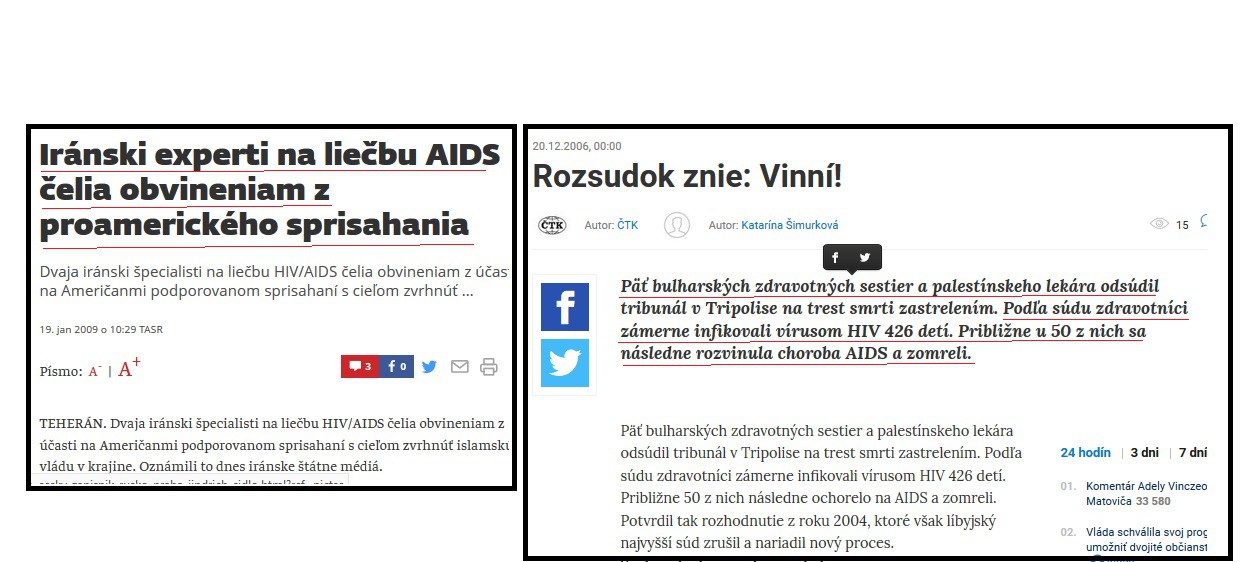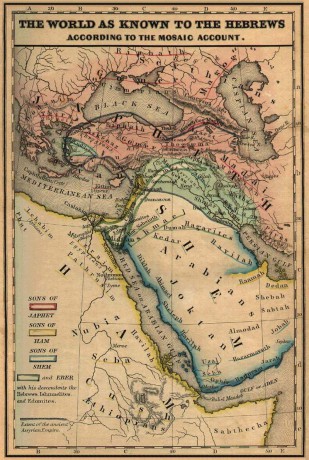Problematika virů a big pharma lobby, 5G
Odkaz nutričního specialisty k zamyšlení nad problematikou virů a big pharma lobby
Odkaz nutričního specialisty k zamyšlení nad problematikou virů a big pharma lobby. Aajonus Vonderplanitz hovoří o tom, co podle něj jsou viry, jak se tvoří, a nabízí jiný pohled na obecně přijímaný pohled na problematiku virů. zdroj videa a popisu: https://lbry.tv/@AntiCensorship:8/Odkaz-nutri%C4%8Dn%C3%ADho-specialisty-k-zamy%C5%A1len%C3%AD-nad-problematikou-vir%C5%AF-a-big-pharma-lobby:b

Přepis videa: https://bit.ly/2xTtIBU
Odkaz na seznam zavražděných mikrobiologů: https://bit.ly/2xNQrz5
Aktuálně zavražděný vědec, co zkoumal covid-19: https://bit.ly/2YQlQME
Aajonus Vonderplanitz zemřel v roce 2013 pádem z balkónu, více info: https://bit.ly/3bkuOV1
Dr. Cowan mluví o 5G: https://bit.ly/3bhxDpO
Dr. Cowan - Historie se opakuje. 5G & koronavirus. Viry nejsou příčinou nemocí.
A tu je dôkaz toho, že 5G siete sú súčasťou plánu na jednotnu svetovládu a zdecimovanie obyvateľov planéty násilnou vakcináciou jedmi a zdraviu škodlivou 5G sieťou.
Sad – so many good doctors, microbiologists, inventors, scientists etc. have their lives ended when most are just trying to help people. List of Dead Microbiologists
(2014) Sad – so many good doctors, microbiologists, inventors, scientists etc. have their lives ended when most are just trying to help people. dead-site1 The worlds top anti-virus microbiologists are being killed off. By 2005, 40 were dead. Today, over 100. Many murdered, the rest died under very suspicious circumstances. It is known they were all working on highly sensitive or government-funded research projects tied to bio-weapons and viral pandemics. Are these silenced ‘whistleblowers’ who knew too much? Why didn’t the mainstream media report in on these stories? Died 2006 #80: Lee Jong-woo, age 61. Died: May 22, 2006 after suffering a blood clot on the brain. Lee was spearheading the organization’s fight against global threats from bird flu, AIDS and other infectious diseases. WHO director-general since 2003, Lee was his country’s top international official. The affable South Korean, who liked to lighten his press conferences with jokes, was a keen sportsman with no history of ill-health, according to officials. Died 2005 #79: Leonid Strachunsky. Died: June 8, 2005 after being hit on the head with a champagne bottle. Strachunsky specialized in creating microbes resistant to biological weapons. Strachunsky was found dead in his hotel room in Moscow, where hed come from Smolensk en route to the United States. Investigators are looking for a connection between the murder of this leading bio weapons researcher and the hepatitis outbreak in Tver, Russia. #78: Robert J. Lull, age 66. Died: May 19, 2005 of multiple stab wounds. Despite his missing car and apparent credit card theft, homicide Inspector Holly Pera said investigators aren’t convinced that robbery was the sole motive for Lull’s killing. She said a robber would typically have taken more valuables from Lull’s home than what the killer left with. Lull had been chief of nuclear medicine at San Francisco General Hospital since 1990 and served as a radiology professor at UCSF. He was past president of the American College of Nuclear Physicians and the San Francisco Medical Society and served as editor of the medical society’s journal, San Francisco Medicine, from 1997 to 1999. Lee Lull said her former husband was a proponent of nuclear power and loved to debate his political positions with others. #77: Todd Kauppila, age 41. Died: May 8, 2005 of hemorrhagic pancreatitis at the Los Alamos hospital, according to the state medical examiner’s office. Picture of him was not available to due secret nature of his work. This is his funeral picture. His death came two days after Kauppila publicly rejoiced over news that the lab’s director was leaving. Kauppila was fired by director Pete Nanos on Sept. 23, 2004 following a security scandal. Kauppila said he was fired because he did not immediately return from a family vacation during a lab investigation into two classified computer disks that were thought to be missing. The apparent security breach forced Nanos to shut down the lab for several weeks. Kauppila claimed he was made a scapegoat over the disks, which investigators concluded never existed. The mistake was blamed on a clerical error. After he was fired, Kauppila accepted a job as a contractor at Bechtel Nevada Corp., a research company that works with Los Alamos and other national laboratories. He was also working on a new Scatter Reduction Grids in Megavolt Radiography focused on metal plates or crossed grids to act to stop the scattered radiation while allowing the unscattered or direct rays to pass through with other scientists: Scott Watson (LANL, DX-3), Chuck Lebeda (LANL, XTA), Alan Tubb (LANL, DX-8), and Mike Appleby (Tecomet Thermo Electron Corp.) #76: David Banks, age 55. Died: May 8, 2005. Banks, based in North Queensland, died in an airplane crash, along with 14 others. He was known as an Agro Genius inventing the mosquito trap used for cattle. Banks was the principal scientist with quarantine authority, Biosecurity Australia, and heavily involved in protecting Australians from unwanted diseases and pests. Most of Dr Banks’ work involved preventing potentially devastating diseases making their way into Australia. He had been through Indonesia looking at the potential for foot and mouth disease to spread through the archipelago and into Australia. Other diseases he had fought to keep out of Australian livestock herds and fruit orchards include classical swine fever, Nipah virus and Japanese encephalitis. #75: Dr. Douglas James Passaro, age 43. Died April 18, 2005 from unknown cause in Oak Park, Illinois. Dr. Passaro was a brilliant epidemiologist who wanted to unlock the secrets of a spiral-shaped bacteria that causes stomach disease. He was a professor who challenged his students with real-life exercises in bioterrorism. He was married to Dr. Sherry Nordstrom.. #74: Geetha Angara, age 43. Died: February 8, 2005. This formerly missing chemist was found in a Totowa, New Jersey water treatment plant’s tank. Angara, 43, of Holmdel, was last seen on the night of Feb. 8 doing water quality tests at the Passaic Valley Water Commission plant in Totowa, where she worked for 12 years. Divers found her body in a 35-foot-deep sump opening at the bottom of one of the emptied tanks. Investigators are treating Angara’s death as a possible homicide. Angara, a senior chemist with a doctorate from New York University, was married and mother of three. #73: Jeong H. Im, age 72. Died: January 7, 2005. Korean Jeong H. Im, died of multiple stab wounds to the chest before firefighters found in his body in the trunk of a burning car on the third level of the Maryland Avenue Garage. A retired research assistant professor at the University of Missouri – Columbia and primarily a protein chemist, MUPD with the assistance of the Columbia Police Department and Columbia Fire Department are conducting a death investigation of the incident. A “person of interest” described as a male 6’–6’2″ wearing some type of mask possible a painters mask or drywall type mask was seen in the area of the Maryland Avenue Garage. Dr. Im was primarily a protein chemist and he was a researcher in the field. Died in 2004 #72: Darwin Kenneth Vest, born April 22, 1951, was an internationally renowned entomologist, expert on hobo spiders and other poisonous spiders and snakes. Darwin disappeared in the early morning hours of June 3, 1999 while walking in downtown Idaho Falls, Idaho (USA). The family believes foul play was involved in his disappearance. A celebration of Darwin’s life was held in Idaho Falls and Moscow on the one-year anniversary of his disappearance. The services included displays of Darwin’s work and thank you letters from school children and teachers. Memories of Darwin were shared by at least a dozen speakers from around the world and concluded with the placing of roses and a memorial wreath in the Snake River. A candlelight vigil was also held that evening on the banks of the Snake River. Darwin was declared legally dead the first week of March 2004 and now the family is in the process of obtaining restraining orders against several companies who saw fit to use his name and photos without permission. His brother David is legal conservator of the estate and his sister Rebecca is handling issues related to Eagle Rock Research and ongoing research projects. Media help in locating Darwin is welcome. Continuing efforts to solve this mystery include recent DNA sampling. Stories about his disappearance continue to appear throughout the world. Issues surrounding missing adult investigations have received new attention following the tragedies of 911. #70-71: Tom Thorne, age 64; Beth Williams, age 53; Died: December 29, 2004. Two wild life scientists, Husband-and-wife wildlife veterinarians who were nationally prominent experts on chronic wasting disease and brucellosis were killed in a snowy-weather crash on U.S. 287 in northern Colorado. #69: Taleb Ibrahim al-Daher. Died: December 21, 2004.Iraqi nuclear scientist was shot dead north of Baghdad by unknown gunmen. He was on his way to work at Diyala University when armed men opened fire on his car as it was crossing a bridge in Baqouba, 57 km northeast of Baghdad. The vehicle swerved off the bridge and fell into the Khrisan river. Al-Daher, who was a professor at the local university, was removed from the submerged car and rushed to Baqouba hospital where he was pronounced dead. #68: John R. La Montagne, age 61. Died: November 2, 2004. Died while in Mexico, no cause stated, later disclosed as pulmonary embolism. PhD, Head of US Infectious Diseases unit under Tommie Thompson. Was NIAID Deputy Director. Expert in AIDS Program work and Microbiology and Infectious Diseases. #67: Matthew Allison, age 32. Died: October 13, 2004. Fatal explosion of a car parked at an Osceola County, Fla., Wal-Mart store. It was no accident, Local 6 News has learned. Found inside a burned car. Witnesses said the man left the store at about 11 p.m. and entered his Ford Taurus car when it exploded. Investigators said they found a Duraflame log and propane canisters on the front passenger’s seat. Allison had a college degree in molecular biology and biotechnology. #66: Mohammed Toki Hussein al-Talakani, age 40. Died: September 5, 2004: Iraqi nuclear scientist was shot dead in Mahmudiya, south of Baghdad. He was a practicing nuclear physicist since 1984. #65: Professor John Clark, Age 52, Died: August 12, 2004. Found hanged in his holiday home. An expert in animal science and biotechnology where he developed techniques for the genetic modification of livestock; this work paved the way for the birth, in 1996, of Dolly the sheep, the first animal to have been cloned from an adult. Head of the science lab which created Dolly the sheep. Prof Clark led the Roslin Institute in Midlothian, one of the world s leading animal biotechnology research centers. He played a crucial role in creating the transgenic sheep that earned the institute worldwide fame. He was put in charge of a project to produce human proteins (which could be used in the treatment of human diseases) in sheep’s milk. Clark and his team focused their study on the production of the alpha-I-antitryps in protein, which is used for treatment of cystic fibrosis. Prof Clark also founded three spin-out firms from Roslin – PPL Therapeutics, Rosgen and Roslin BioMed. #64: Dr. John Badwey, age 54. Died: July 21, 2004. Scientist and accidental politician when he opposed disposal of sewage waste program of exposing humans to sludge. Suddenly developed pneumonia like symptoms then died in two weeks. Biochemist at Harvard Medical School specializing in infectious diseases. #63: Dr. Bassem al-Mudares. Died: July 21, 2004. Mutilated body was found in the city of Samarra, Iraq*. He was a Phd. chemist and had been tortured before being killed. He was a drug company worker who had a chemistry doctorate. #62: Professor Stephen Tabet, age 42. Died on July 6, 2004 from an unknown illness. He was an associate professor and epidemiologist at the University of Washington. A world-renowned HIV doctor and researcher who worked with HIV patients in a vaccine clinical trial for the HIV Vaccine Trials Network. #61: Dr. Larry Bustard, age 53. Died July 2, 2004 from unknown causes. He was a Sandia scientist in the Department of Energy who helped develop a foam spray to clean up congressional buildings and media sites during the anthrax scare in 2001. He worked at Sandia National Laboratories in Albuquerque. As an expert in bioterrorism, his team came up with a new technology used against biological and chemical agents. #60: Edward Hoffman, age 62. Died July 1, 2004 from unknown causes. Hoffman was a professor and a scientist who also held leadership positions within the UCLA medical community. He worked to develop the first human PET scanner in 1973 at Washington University in St. Louis. #59: John Mullen, age 67. Died: June 29, 2004. A Nuclear physicist poisoned with a huge dose of arsenic. A nuclear research scientist with McDonnell Douglas. Police investigating will not say how Mullen was exposed to the arsenic or where it came from. At the time of his death he was doing contract work for Boeing. #58: Dr. Paul Norman, age 52. Died: June 27, 2004. From Salisbury Wiltshire. Killed when the single-engine Cessna 206 he was piloting crashed in Devon. Expert in chemical and biological weapons. He traveled the world lecturing on defending against the scourge of weapons of mass destruction. He was married with a 14-year-old son and a 20-year-old daughter, and was the chief scientist for chemical and biological defense at the Ministry of Defense’s laboratory at Porton Down, Wiltshire. The crash site was examined by officials from the Air Accidents Investigation Branch and the wreckage of the aircraft was removed from the site to the AAIB base at Farnborough. #57: Dr. Assefa Tulu, age 45. Died: June 24, 2004. Dr. Tulu joined the health department in 1997 and served for five years as the county’s lone epidemiologist. He was charged with trackcing the health of the county, including the spread of diseases, such as syphilis, AIDS and measles. He also designed a system for detecting a bioterrorism attack involving viruses or bacterial agents. Tulu often coordinated efforts to address major health concerns in Dallas County, such as the West Nile virus outbreaks of the past few years, and worked with the media to inform the public. Found face down, dead in his office. The Dallas County Epidemiologist died of a hemorrhagic stroke. continue reading
